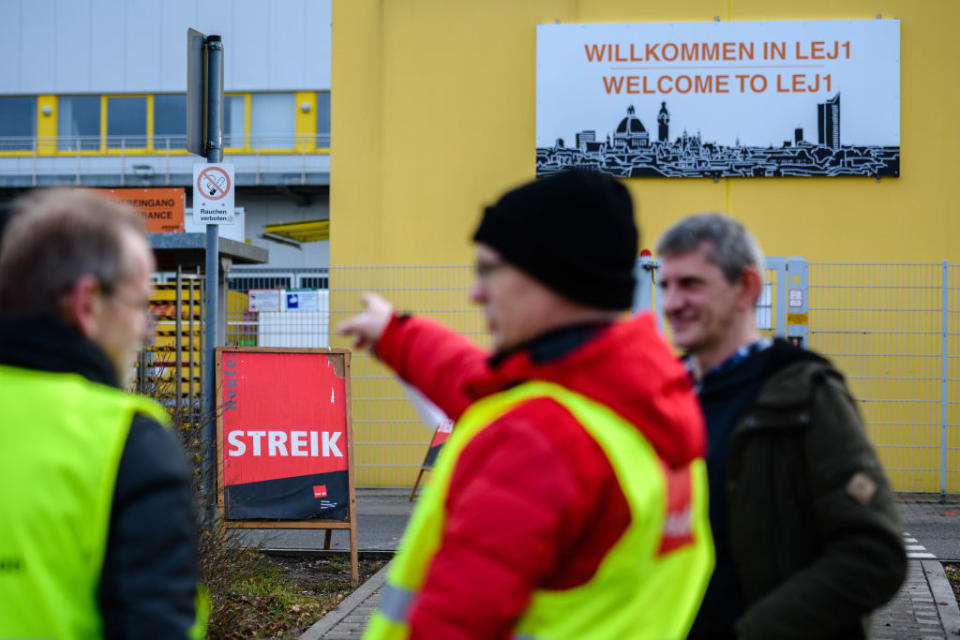Why are Amazon workers striking on Prime Day?

Amazon Prime Day is an annual sale event for Amazon subscribers, and it’s made headlines for its insane 65-hour deals.
But, Amazon Prime Day is making headlines for reasons other than its sales: namely, because Amazon workers in Minnesota and Germany are staging mass strikes during the sale period.
Also read: Amazon Prime Day on now in Australia: Here are the best deals
Also read: Aussies addicted to online shopping: 8 tips to save
CNBC reported employees at the Amazon fulfilment center in Shakopee, Minnesota, would stop working for six hours today (15 July in the US), while around 2,000 workers across seven Amazon sites in Germany went on strike on Sunday and again yesterday.
So why are Amazon workers striking?
They’re striking in protest of working conditions and wage practices.
Amazon’s promised its Prime members one-day shipping on selected items, which means workers will be physically, and mentally, drained - more so than they already are.
CNBC reported workers outside the Minnesota facility last night were shouting: “We work, we sweat, Amazon workers need a rest!”
Last year, Amazon raised its minimum wage to US$15 (AU$21.30) for all US employees, which was a move in the right direction, but it’s not enough to satisfy workers’ needs.
On top of that, the majority of workers at that facility are reportedly East African, and they’re reportedly frustrated because the online giant fails to acknowledge their religious practices.
The US strike is organised by the Awood Center, a group that advocates for Somalian and East African workers.
In a statement addressing the strike, Awood Center it’s calling on Amazon to “provide safe and reliable jobs, increase respect and opportunities for advancement for the predominantly East African workforce, protect the right to organize and advocate for better working conditions”, and they want “concrete action from Amazon” on critical issues like climate change.
But while it’s the first time US workers are striking, European workers have been here before - German Amazon workers have been striking and protesting against the company since 2014.


Now, the strikes in Werne, Rheinberg, Leipzig, Graben, Koblenz and Bad Hersfeld saw Amazon workers chanting “no more discount on our incomes”, CNN reported.
The strikes are championed by German union, Verdi.
"While Amazon throws huge discounts to its customers on Prime Day, employees lack a living wage," Verdi retail specialist, Orhan Akman said in a statement.
"The company must finally recognise collective agreements for the retail and postal sectors; wages and salaries cannot be determined in the style of lord of the manor," Akman said.
Is Amazon responding to its workers’ requests?
Amazon insists it’s already doing the best it can do.
“The fact is Amazon offers already what this outside organization is asking for,” the company told CNBC via email.
“We provide great employment opportunities with excellent pay – ranging from [US]$16.20-[US]$20.80 an hour, and comprehensive benefits including health care, up to 20 weeks parental leave, paid education, promotional opportunities, and more.”
“We encourage anyone to compare our pay, benefits, and workplace to other retailers and major employers in the Shakopee community and across the country – and we invite anyone to see for themselves by taking a tour of the facility.”
In Germany, Amazon responded to protests by saying that, in its fulfilment centers, wages were “at the upper end” of what’s paid in comparable jobs.
Make your money work with Yahoo Finance’s daily newsletter. Sign up here and stay on top of the latest money, news and tech news.

 Yahoo Finance
Yahoo Finance 